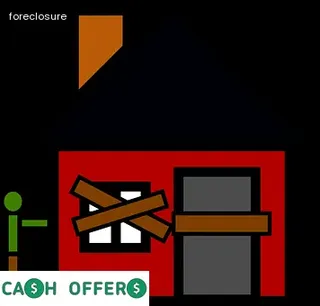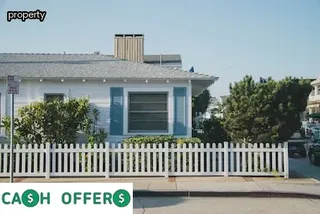Understanding HOA liens in California is a complex topic because of the power that Homeowners' Associations (HOA) have when it comes to enforcing laws and collecting fees. In California, when an owner fails to pay dues or other fees owed to the HOA, the association can take legal action and place a lien on the homeowner's property.
A lien gives the HOA the right to foreclose on a property if dues remain unpaid for an extended period of time. This means that if you live in California, you may be at risk of losing your home even if you are current on your mortgage payments, as HOAs have powerful legal rights to collect past due payments.
If a foreclosure process begins, you may be able to negotiate with the HOA and come up with payment arrangements or other alternatives that will satisfy both parties. It is important to understand all of your rights before entering into negotiations with an HOA so that you can ensure that your interests are protected.

Homeowners in California need to be aware of the HOA fees they are obligated to pay as part of their home ownership. These payments must be made on time and in full to avoid any potential foreclosures or other legal action by the Homeowner's Association (HOA).
If a homeowner neglects to make payments, the HOA can take steps to collect what is due, which could include litigation or foreclosure on the property. In order to prevent these legal actions from occurring, homeowners should stay on top of their payments and communicate with their HOA if they are unable to make timely payments.
Before signing a contract for a property, homeowners should also ask questions about the fees associated with that particular development and find out what happens if payments are not made. Knowing about potential consequences ahead of time can help homeowners prepare for any challenges that may arise in regards to HOA fees.
Navigating HOA fines and penalties in California can be a complex process, especially when it comes to foreclosing on homeowners. In the state, Homeowners Associations (HOAs) have the power to levy fines, place liens and even foreclose on properties if owners are delinquent in paying dues or violating rules set by the association.
Before any foreclosure action is taken, however, the homeowner must be provided with ample notice and an opportunity to dispute the allegations. If a homeowner fails to pay or otherwise remedy the situation, then an HOA may initiate foreclosure proceedings.
In California, HOAs can take this course of action as long as they follow all applicable laws and regulations. A foreclosure will only occur after all other options have been exhausted and it is ultimately up to the court to decide whether or not to grant a foreclosure judgment.
Knowing your rights as a homeowner is essential when dealing with HOAs, so it's important for anyone facing potential fines or penalties to understand their rights under California law.

Not paying Homeowners Association (HOA) fees in California can have serious consequences for homeowners. In the state of California, HOAs have the power to foreclose on a homeowner’s property if fees are not paid.
This means that if a homeowner fails to pay their HOA dues, the HOA is legally able to put a lien on the home and eventually take ownership of it. Other consequences of not paying HOA fees include interest charges and legal costs that may be added to the amount owed by the homeowner.
Additionally, some HOAs have rules which allow them to fine homeowners for failing to comply with regulations or pay dues on time. Not paying these fines can result in further financial penalties or even suspension of certain privileges such as access to amenities like swimming pools or golf courses.
Ultimately, it is important for homeowners in California to understand their obligations and meet all necessary payments in order to avoid potentially devastating consequences.
Homeowners in California should be aware of the possibility of an HOA foreclosure on their property. To avoid this unfortunate circumstance, it is important to stay up-to-date on HOA dues and other payments that are required by the governing documents of the association.
Additionally, homeowners should review their HOA's regulations to understand how much time they have before a foreclosure is initiated. Furthermore, it is important for homeowners to promptly respond to notices from the HOA related to delinquency or other issues that could result in a foreclosure; if possible, try to negotiate with your HOA for an alternative payment arrangement.
Finally, if the issue cannot be resolved privately between the homeowner and the association, homeowners may want to consider consulting a lawyer who specializes in California real estate law as they could provide valuable advice and assistance with any action taken by the association.

The protection of one's mortgage during an HOA foreclosure is an important part of the home ownership process. To ensure that a homeowner's rights are protected, it is essential to understand the legal procedures associated with HOA foreclosures in California.
It is also important to be aware of any foreclosure prevention options available to homeowners and their lenders in order to avoid or delay a foreclosure. Homeowners should research their state’s regulations regarding HOAs and their ability to foreclose on real estate so they have an understanding of what recourse they may have if faced with such a situation.
In addition, homeowners should consider consulting with an attorney and speaking with their lender about potential foreclosure prevention options if they find themselves in danger of having their property foreclosed upon by an HOA. Understanding the legal process surrounding HOAs and foreclosures can help homeowners protect themselves from unexpected costs or financial losses due to the sale or transfer of their property during a foreclosure process.
When facing an HOA foreclosure in California, homeowners should explore the legal options available to them. It is important to understand the law and take action to protect one's rights.
Homeowners should begin by familiarizing themselves with the state statutes and any applicable rules for HOAs in their area. Additionally, many HOAs have their own set of regulations that must be followed when foreclosing on a property.
Those regulations may not always be consistent with state law, so it is critical to review both sets of laws carefully. Homeowners may also benefit from consulting a lawyer or other legal professionals who specialize in HOA foreclosures to ensure they are fully informed of their rights and best courses of action.
Understanding the process and relevant laws can empower Californians to make informed decisions regarding their properties and prepare for potential legal battles should they arise.

Homeowners in California are subject to the regulations of their Homeowners Association (HOA). While HOAs may have rules and regulations that must be followed, they do not hold the power to foreclose on a property.
Foreclosure is only allowed when a mortgage holder or lender has not been able to collect payments from the homeowner. In order for an HOA to collect payment, they must first file a lien in court which will give them legal authority to collect money owed.
This process can take months and can end up being costly for the homeowner if they don’t pay what they owe. It is important for homeowners in California to understand the statutory compliance of their state's HOA laws so that they know how to protect themselves from potential foreclosure proceedings.
Knowing these laws can help them better negotiate payment options with their HOA before any action is taken against them. Additionally, it is important for homeowners to stay current on any dues or fees associated with their HOA agreement so as not to create any complications down the road.
When it comes to strategizing representation for homeowners in disputes with their Homeowners Association (HOA), it is important to understand the rights of both parties. In California, HOAs have the right to foreclose on a homeowner's property if they are in violation of the governing documents or are behind on dues and assessments.
This can be an intimidating situation for a homeowner, but there are steps that can be taken to protect against foreclosure. An attorney experienced in HOA law can provide legal advice and help negotiate payment plans, review governing documents, and assess potential defenses.
Additionally, it is often beneficial to have a thorough understanding of state laws and regulations as well as local ordinances related to HOA foreclosures. By familiarizing oneself with these laws and ordinances, homeowners may be able to better represent themselves against their HOAs in foreclosure situations.

When facing a foreclosure from a Homeowners' Association (HOA) in California, it is important to understand your legal rights and options. In general, if the HOA has violated its own rules or has acted outside of the scope of the governing documents of the association, you may have grounds for a legal challenge.
When considering how to proceed, it is important to weigh the potential risks and rewards of taking legal action against attempting a compromise with the HOA. Legal challenges can be costly and time-consuming, but they can also ensure that your rights are protected and that any foreclosure proceedings are conducted fairly.
On the other hand, attempting to negotiate with an HOA may result in a satisfactory outcome without incurring unnecessary expenses, but there is no guarantee that all parties will be treated equitably under such an arrangement. Ultimately, when facing possible foreclosure from an HOA in California, homeowners must decide whether real estate litigation or compromise is their best option.
Handling business disputes between homeowners and HOAs is a complex issue with potential legal ramifications. In California, HOAs are legally empowered to foreclose on homeowners who fail to pay their dues.
This can be a stressful situation for both parties, as it involves the potential loss of a home and an uncertain financial future. Before resorting to foreclosure, however, it is important that homeowners and HOAs try to resolve their disputes through negotiation or arbitration.
Both parties may also benefit from consulting an experienced lawyer who can provide guidance on how best to handle the dispute and advise them of their rights under relevant state laws. Additionally, there are organizations that specialize in providing mediation services which may be beneficial in resolving conflicts between homeowners and HOAs.
Ultimately, the goal should be to find a solution that benefits both parties while protecting each one's rights under the law.

When investigating construction defects involving HOAs, it is important to understand the process of how a Homeowners Association can foreclose on a homeowner's property in California. The process of foreclosure typically begins with the HOA sending out a notice of default to the homeowner, which will include an amount due for delinquent payments or fees.
If this is not paid within a set time then the HOA can begin the foreclosure process by filing a lawsuit. In order for an HOA to successfully foreclose on a home in California, they must prove that there is an outstanding debt and that all legal requirements have been met.
This includes providing evidence such as copies of unpaid bills and court documents outlining the terms of the loan agreement. Once all required documents have been submitted, and all parties are in agreement, then the HOA can move forward with foreclosing on the property.
It should also be noted that homeowners may still be able to prevent their property from being foreclosed upon by working out payment arrangements or filing for bankruptcy protection.
Evaluating the impact of levied debts by HOAs on homeowners is essential in understanding the current foreclosure landscape in California. Homeowners Associations (HOAs) have their own set of rules that dictate when a homeowner may be subject to foreclosure, and understanding these regulations is key to preventing such an event.
In California, a homeowner may be subject to foreclosure if they are delinquent in paying their HOA assessments, as well as any fines or other penalties issued by the association. However, it is important to note that while HOAs may have the right to foreclose on a property if certain criteria are met, they must still comply with state laws which require them to provide the homeowner with due process protections.
Additionally, HOAs must also abide by federal laws regarding fair debt collection practices and cannot take any action that would be considered unlawful or excessive. Ultimately, evaluating the potential impacts of levying debts against homeowners by HOAs is necessary for ensuring both parties are treated fairly and lawfully during the foreclosure process.
If you are a homeowner in California and fail to pay your Homeowner Association (HOA) fines, it could result in foreclosure. Foreclosure is the legal process by which a lender can repossess property if the borrower fails to make loan payments or to comply with other contractual obligations.
In California, HOAs have the power to foreclose on a home if a homeowner doesn’t pay their dues. If an HOA initiates foreclosure proceedings, they must provide notice of the delinquency and an opportunity for the owner to cure the amount due.
If the owner still fails to pay, then the HOA can proceed with foreclosure proceedings. The process typically takes several months and may involve court hearings.
Ultimately, if all other options fail, the property will be sold at public auction and any proceeds are used to cover unpaid HOA fees. It is important that homeowners in California remain current on their HOA fees in order to avoid potential foreclosure.

In California, homeowners who have fallen behind on their Homeowners Association (HOA) dues may be subject to foreclosure. In order to protect homeowners from losing their property, the state of California provides a redemption period after an HOA foreclosure sale.
During this period, the homeowner has the right to redeem their property by paying off all amounts due. The length of this redemption period depends on whether the homeowner was personally served with the notice of default or not.
If they were personally served, they generally have six months to redeem their property; if they were not personally served, they have one year. It is important for homeowners to understand that if they do not exercise their right to redeem during this time frame, title will transfer to the purchaser at the foreclosure sale and any rights that the homeowner had in relation to the property will be terminated.
In California, there are certain Homeowners Association (HOA) rules that cannot be enforced. One example is a rule which requires homeowners to keep their homes in perfect condition or face a fine.
This type of rule is unenforceable because it does not make a clear distinction between what is considered "acceptable" and "unacceptable" maintenance and repair. Furthermore, HOAs cannot levy fines against homeowners for violations unless they offer an alternate dispute resolution process.
Additionally, HOAs cannot foreclose on a homeowner's property due to non-payment of dues or assessments as foreclosure is reserved only for lenders in California. Finally, HOAs are not allowed to place liens on a homeowner's property for unpaid fees since the power of liens must come from an act of the legislature.
Thus, it is important for all California homeowners to understand what HOA rules can and cannot be legally enforced in order to protect themselves and their property rights.
In California, an HOA, or Homeowners Association, has the power to enforce rules and regulations set by the governing board of the HOA. These rules are intended to maintain an aesthetically pleasing environment that benefits all members of the association.
Additionally, HOAs can levy fines on homeowners who do not follow through with their obligations in order to protect the interests of all members. In extreme cases, a California HOA can foreclose on a homeowner's property if they fail to pay dues or abide by other provisions set out in the association's governing documents.
It is important for homeowners in California to understand their rights with regard to HOAs, as well as their responsibilities when it comes to fulfilling their obligations within the association.